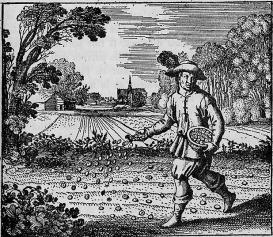This project examines the influence of alchemy on agricultural improvement projects in early modern Europe and the Atlantic world. In my research, I demonstrate that crucial alchemical work extended far beyond the laboratory, library, princely court, and workshop, and included farmers, gardeners, common laborers, salt workers, metal smiths, and others for whom the operational techniques of alchemy provided the best explanation for physical and chemical change observed in nature. I explore how non-elite laypeople adopted its basic experimental techniques in farms, fields, kitchens, orchards, and gardens as part of a broad program of improving agricultural output, making farms and plantations more economically productive, and gaining an understanding of the life cycle of plants. By examining sixteenth- and seventeenth-century alchemical recipe books, husbandry manuals, botanical treatises, agricultural records, and letters, among other sources, I demonstrate that European agricultural reformers employed alchemy to solve many practical, agricultural problems. These historical figures endeavored to enhance soil fertility, develop artificial chemical fertilizers, confer nutritive properties and disease resistance to seeds, augment plant growth, and isolate the life-giving properties that they believed inhered in inert matter.
This research on the relationship between alchemy and agriculture transforms our understanding of the origins of ecology, sustainability, and environmental management and changes the traditional historical interpretation of how the human/nature relationship was upended in global and imperial context. Ultimately, this project argues that alchemical practice and theory played a small but vital role in the agricultural revolution.

